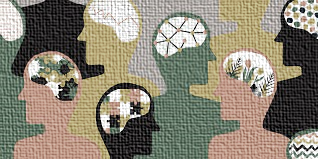
Temperament and Personality
These two terms often define what we know and understand of a person, and are often used interchangeably or in a similar context. However, there are subtle differences. Temperament refers to how people behave, and Personality refers to why people behave in a certain way.
Temperament is more biologically and genetically programmed and inherited. It is not under one’s control. It is seen in childhood as one’s emotional reactivity and way of self-regulation. Whatever be the type of temperament, there are positive and negative sides to each type. Parenting and schooling are aimed at developing the positive side of a child’s temperament.
Personality is more of an acquired phenomenon molded by education, learning, and experience which is more under one’s control. It encompasses feelings, thoughts, interpretations, and behaviors. It is something acquired over the temperament and can evolve over time, like with age, and interactions.
There are basically 4 types of temperament as shown below with their positive and negative attributes.
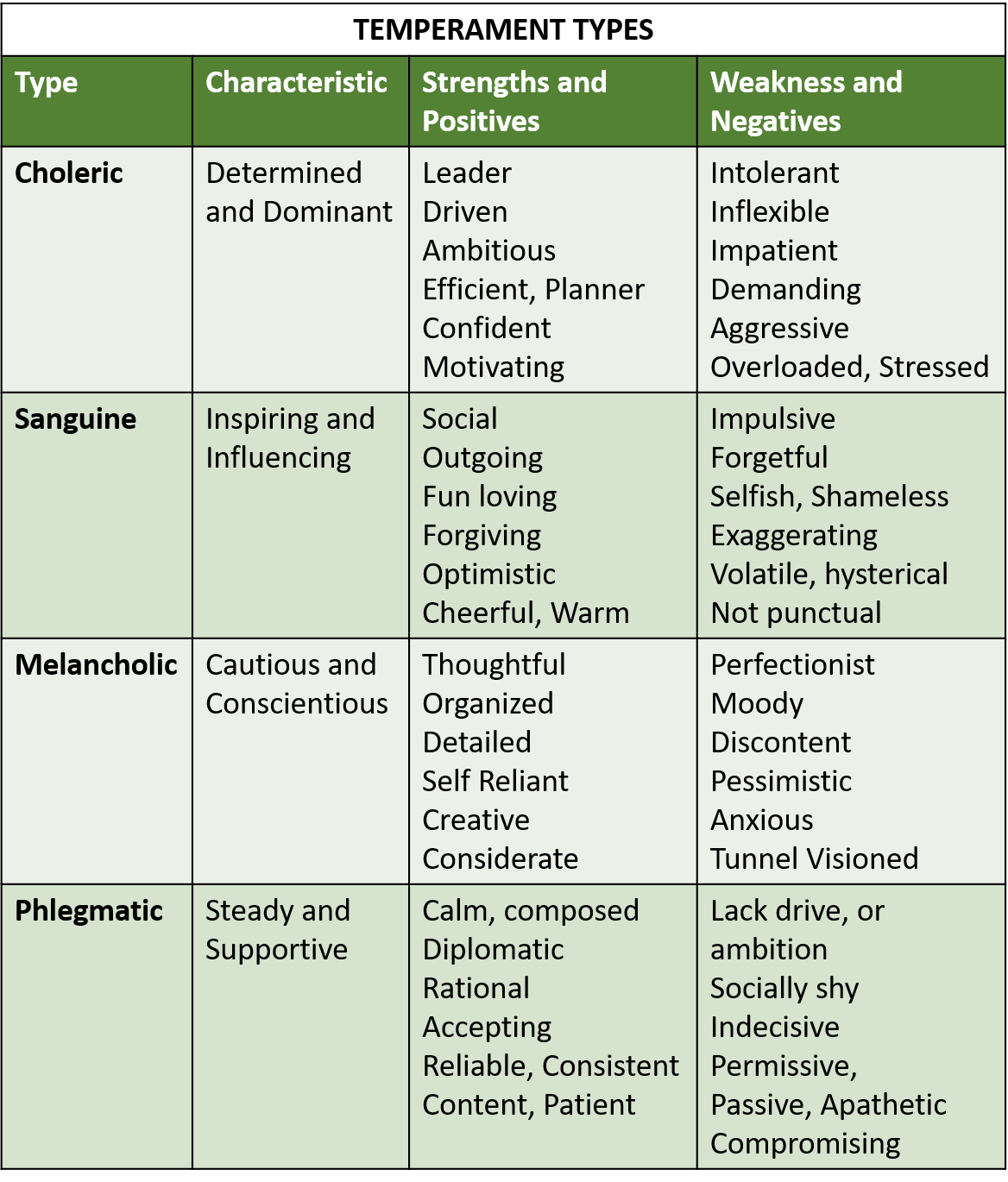


Given below are the 4 types of personalities, that are fairly corresponding and overlapping with the 4 types of temperaments. So, it is evident that temperament has a significant bearing on the personality developed, however, the personalities and their traits are dependent on and contributed to by the environment, learning, and experience.
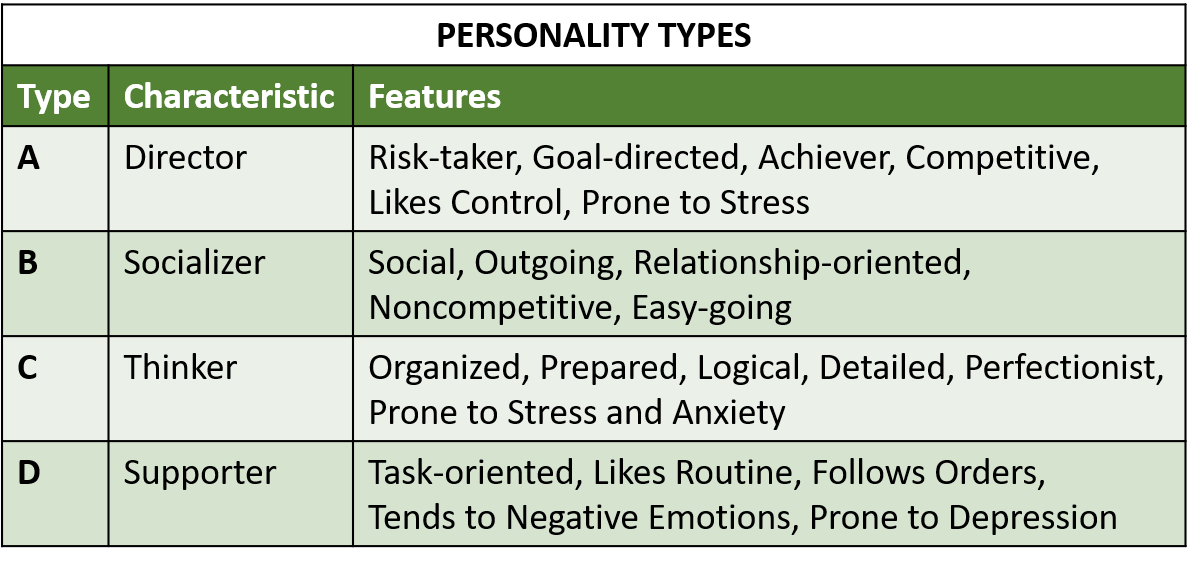


The Big 5 Personality Traits
Some psychologists assess personalities based on the 5 major traits as given below. (Acronym – OCEAN)
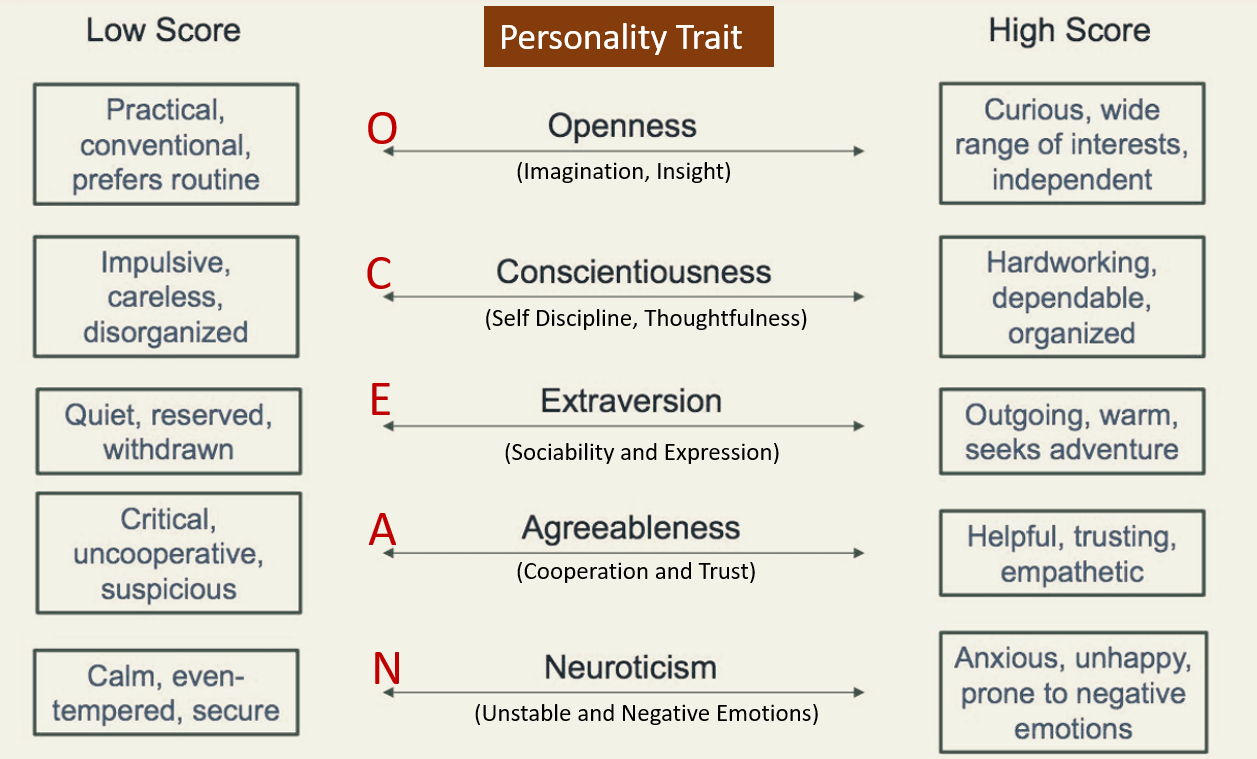


16 Types of Personalities
Some psychologists use certain (4+4) attributes to give 16 types of personalities based on various permutations and combinations of these attributes.
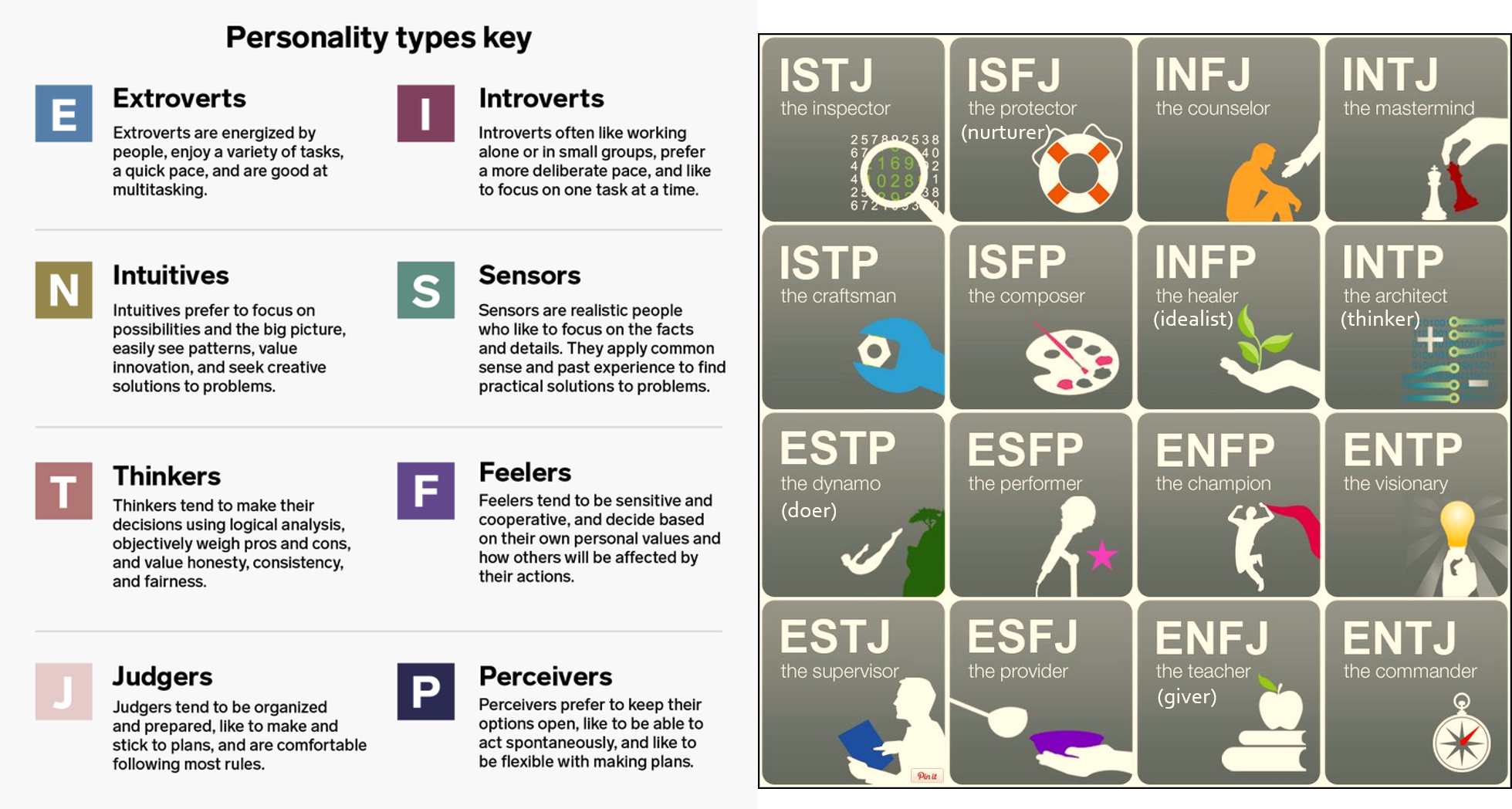


Personality Disorders
They refer to abnormalities that affect thoughts and behaviors and make the person maladaptive socially and in relationships. These are included in mental health disorders.
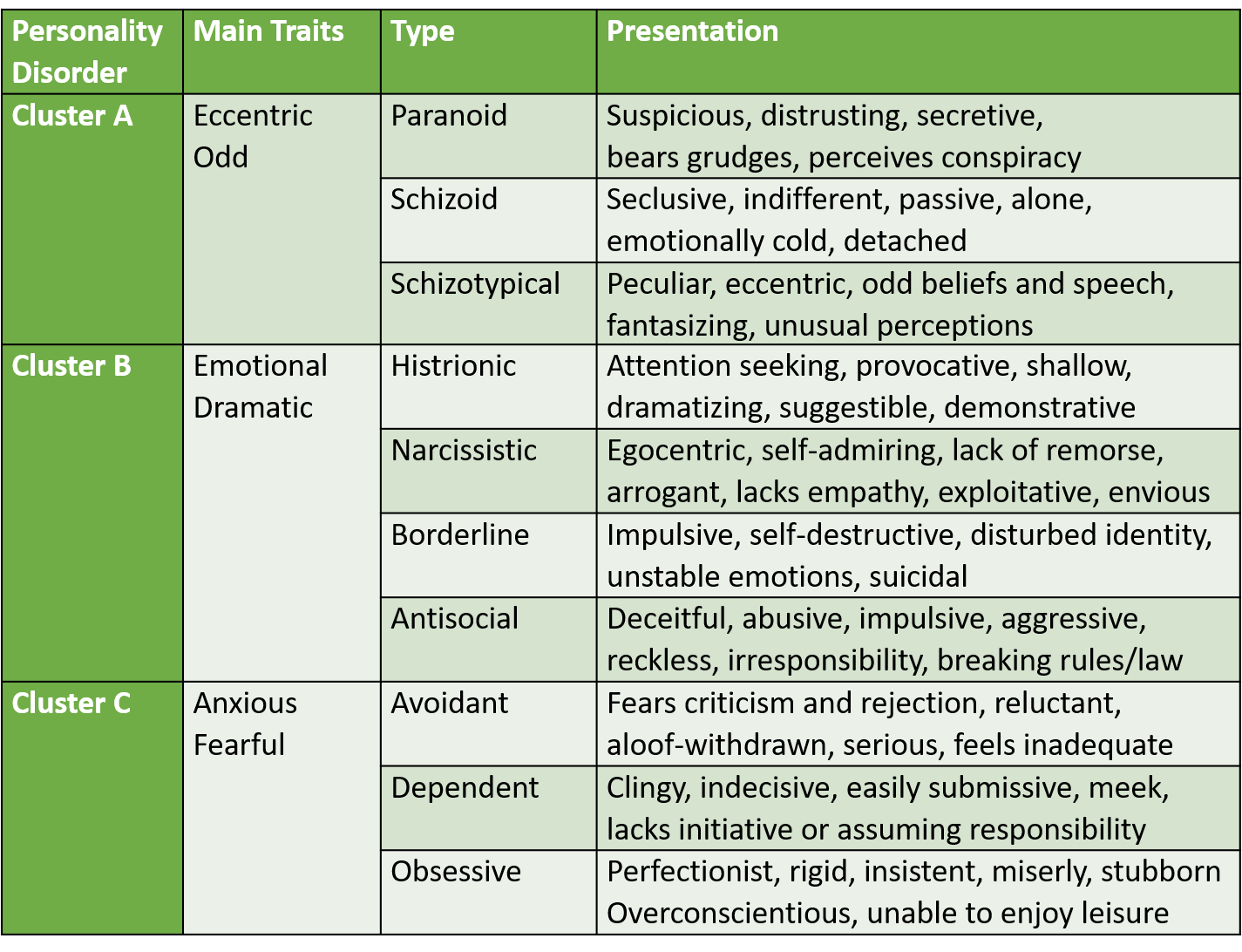


Psychologists assess temperament and personality type and attributes while managing people with mental health disorders. Personality disorders are seldom treatable with medicines, though sometimes antidepressants, anti-anxiety, or antipsychotics may be prescribed. The treatment involves counseling, cognitive-behavioral therapy (CBT), dialectical behavioral therapy (DBT), and mentalization.
Also read:
Reference

